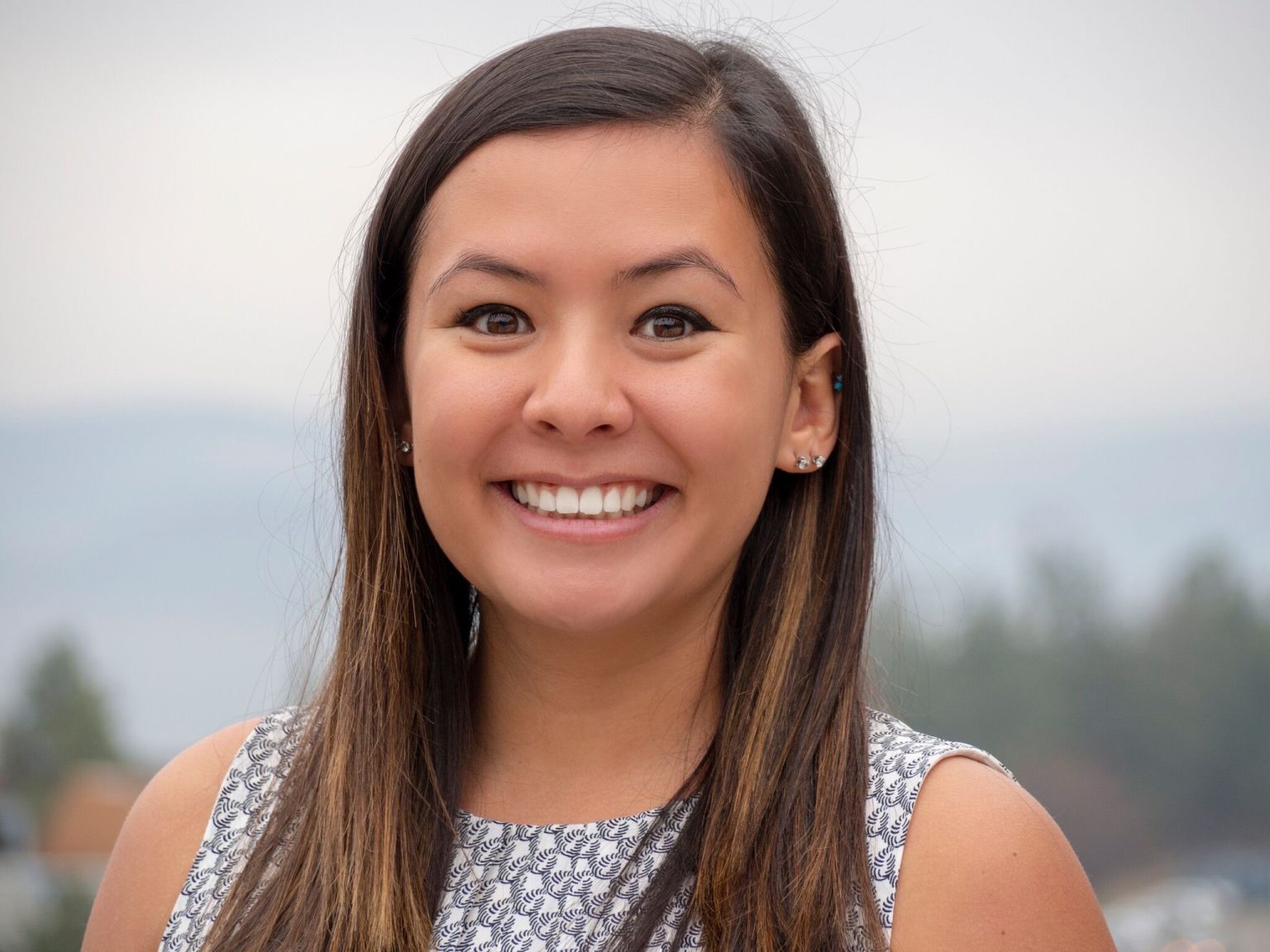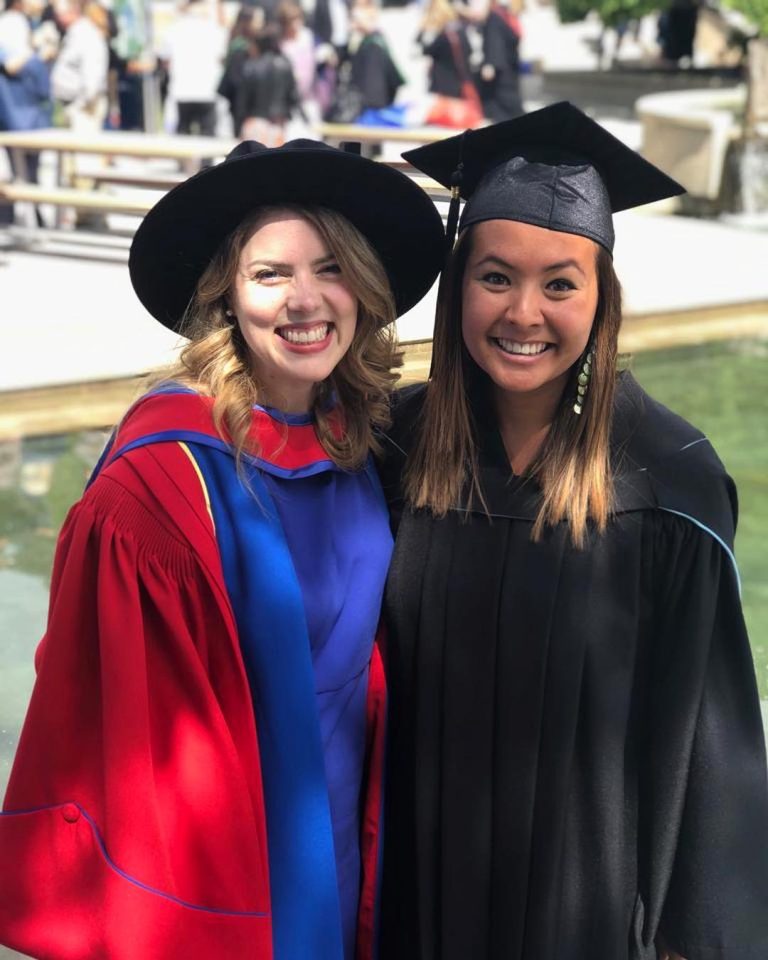 NAME:
NAME:
Emily Giroux
PROGRAM:
PhD in Kinesiology
RESEARCH SUPERVISOR(S):
Dr. Heather L. Gainforth
HOMETOWN:
Markham, ON
AWARDS:
Social Sciences and Humanities Research Council (SSHRC) Doctoral Fellowship
MITACS Accelerate Fellowship
UBC Okanagan Graduate Research Scholarships
UBC Okanagan Public Scholar
RESEARCH DESCRIPTION
Spinal cord injury (SCI) community-based organizations (CBOs) support people with SCI to live their lives to the fullest potential after a SCI. This support is provided through the delivery of many programs such peer support, recreation activities, employment services, and at-home attendant services. The funding that CBOs need to deliver these programs is often dependent on the design of these programs being informed by research. Unfortunately, SCI communities have felt tokenized when working with researchers – and do not feel that researchers always act with communities’ best intentions while conducting research. This inauthentic relationship may deter SCI communities from wanting to work with and learn from researchers, preventing meaningful research from actually being used in practice.
Enabling researchers to conduct research meaningfully in partnership with SCI CBOs may be a critical first step in not only helping CBOs have access to relevant research to inform their programs, but also be able to use research more effectively in their everyday operations. My research aims to enable the development of authentic and equitable partnerships between researchers and SCI CBOs by answering these questions:
- What are the needs, priorities, and unique considerations that researchers need to know about when working with SCI CBOs?
- What lessons can we learn from the success stories of SCI CBOs that have meaningfully worked with researchers in the past?
- Can an online course support people with SCI and SCI CBOs to work more meaningfully with researchers?
WHAT DOES BEING A PUBLIC SCHOLAR MEAN TO YOU?
Being a Public Scholar, especially being part of the first cohort of Public Scholars at UBC Okanagan is an absolute honour. To me, being selected was confirmation that others were able to see the same value and impact from my research for others that I do. It was also very exciting to know that I would be better positioned during my graduate studies to share my research with the public community in more engaging and accessible ways. Also, this initiative has yet to come to UBC Okanagan, so it is really exciting to be involved at this stage to be able to shape what the Public Scholars Initiative at UBC Okanagan can look like for future scholars.
IN WHAT WAYS DO YOU THINK THE PHD EXPERIENCE CAN BE RE-IMAGINED WITH THE PUBLIC SCHOLARS INITIATIVE?
I believe that the Public Scholars Initiative transforms the PhD experience by allowing for greater impact of one’s PhD work and growth through collaboration for the researcher themselves.
Publishing manuscripts in peer-reviewed journals is often viewed as the primary outputs of a PhD. These manuscripts play a valuable role in communicating research advancements to the academic community. For broader communities outside of academia, these outputs are inaccessible as they are often written with scientific jargon or cannot be located or accessed at all. The Public Scholars Initiative provides a unique combination of financial support and training in creativity to move beyond a typical manuscript, and share research through more engaging and accessible outlets – movies, creative storytelling, the development of an app, advocacy efforts – the possibilities are endless!
Another unique and exciting feature about the Public Scholar’s Initiative is this network that you become part of, not just for the duration of your PhD, but for the rest of your life! It is a fantastic feeling to be part of a cohort that prioritizes the impact of research on individuals, groups, and communities, as it is a safe space to learn and grow to become the best public scholar you can be. The Public Scholars Initiative feels like a pivotal first step in shifting the narrative of what constitutes “impactful research” from the number of publications one has, to the number of communities positively impacted by your work.
HOW DO YOU ENVISION CONNECTING YOUR PHD WORK WITH BROADER CAREER POSSIBILITIES?
There is so much to gain from the practice of research beyond the production of peer-reviewed publications. A PhD allows you to develop invaluable networking, presentation, communication, and problem-solving skills that would be an asset to careers within or outside of academia. Through my interactions within the PSI network and my research partners, I hope to develop and grow my own personal set of skills, and learn about the wide range of career fields that would benefit from not just research findings themselves, but the skills that come from a research degree focused on supporting community-based organizations.
HOW DOES YOUR RESEARCH ENGAGE WITH THE LARGER COMMUNITY AND SOCIAL PARTNERS?
All of the research in my dissertation, as well as other research projects that I work on in my lab, are conducted in partnership with those who can benefit from the research findings and apply them to their everyday contexts. Involving these individuals, groups, organizations and/or communities throughout all stages of the research process, ensures that how the research is conducted and disseminated remains not only relevant and useful, but also more likely to be used since there’s no gap between researchers who conduct research and those who use the research in practice. Since my project focuses on spinal cord injury (SCI) community-based organizations (CBOs), my community partners are a combination of SCI CBO staff, and people with lived experience of SCI. I meet with my partners frequently to listen to their needs and priorities in relation to how SCI CBOs serve people with SCI. I then think through strategies, methods, and processes that can best address these needs and priorities, and we collaboratively decide upon the best strategy/method/process to use.
HOW DO YOU HOPE YOUR WORK CAN MAKE A CONTRIBUTION TO THE PUBLIC GOOD?
I believe my work has the potential to make contributions within the SCI community and beyond for the public good. My work will result in more knowledge of the unique needs, priorities, and everyday operations that impact these SCI organizations understanding and use of research. Through my PSI support, I hope this understanding can be meaningfully disseminated to enable researchers and community organizations with the knowledge and skills to act more meaningfully in research relationships. The impact of this work does not stop at the SCI community, and can extend into the development of authentic research relationships for other equity-deserving groups and communities as well.
WHY DID YOU DECIDE TO PURSUE A GRADUATE DEGREE?

Emily Giroux with her Master’s and Doctoral supervisor Dr. Heather Gainforth.
In 2015, I was in the final year of my Kinesiology degree, and was feeling discouraged since I was not enjoying my position shadowing a physiotherapist as much as I thought I would. I was feeling lost, and wanted to find another career path, or even a volunteer opportunity that was more meaningful and fulfilling to me.
One of my closest friends encouraged me to start volunteering at MacWheelers, which was an adapted gym at McMaster University designed specifically for people with SCI. I worked really closely with one client and we developed a strong friendship. I felt as if I learned so much from him, and I knew right away that this volunteer experience felt more meaningful to me than any other experiences I had been part of before. I immediately started looking into how I could turn this experience into a career, or become more involved in any capacity since it was something I was so passionate about. I came across a research practicum for SCI research through Dr. Kathleen Martin Ginis, and through that experience and my volunteering, I knew graduate school was for me.
WHY DID YOU CHOOSE TO COME TO UBC OKANAGAN AND STUDY?
Another challenge I experienced during my undergraduate studies was trying to figure out what my strengths and interests were within the field of kinesiology. In my fourth year, I started to take more psychology-based kinesiology courses, which I had greater interest in. During my exercise psychology lecture, there was an advertisement for a new professor at UBC Okanagan, Dr. Heather Gainforth, who had an interest in more psychology-based research, with a focus on SCI. It almost felt like fate, because it felt like all of my interests were coming together into one opportunity.
After arriving in Kelowna and beginning to work with Dr. Gainforth, I soon came to learn that Kelowna was home to an incredible and diverse SCI community supported through Spinal Cord Injury BC and Accessible Okanagan. Many members of the community truly value the impact of research, and getting to know and work with such incredible people continued to motivate me to make the research I was doing as impactful as possible. It is certainly a community like no other that is unique to my work at UBC Okanagan.
Emily Giroux is a UBC Okanagan Public Scholar. Learn more about the Public Scholars Initiative (PSI).